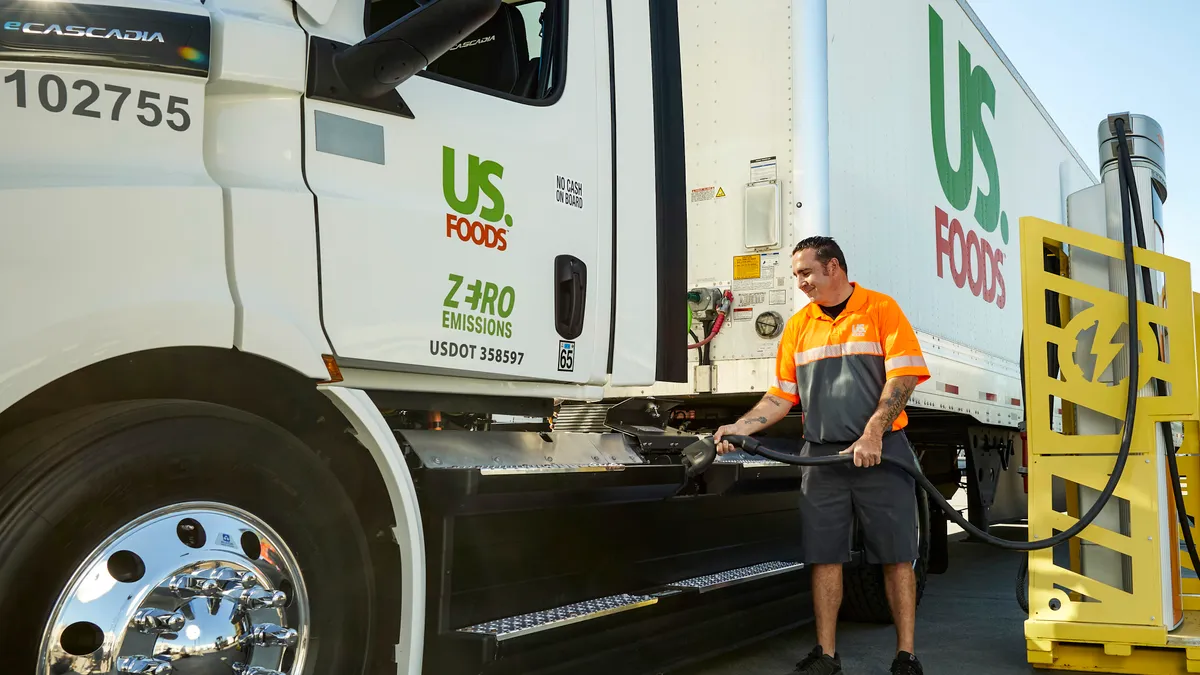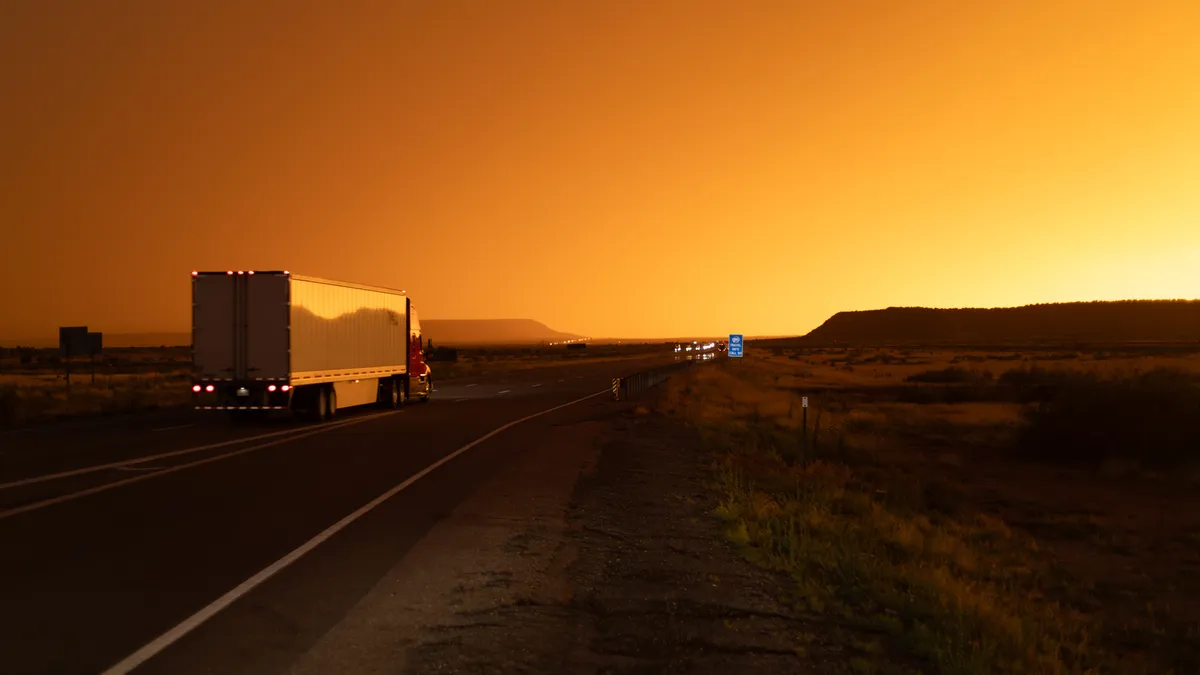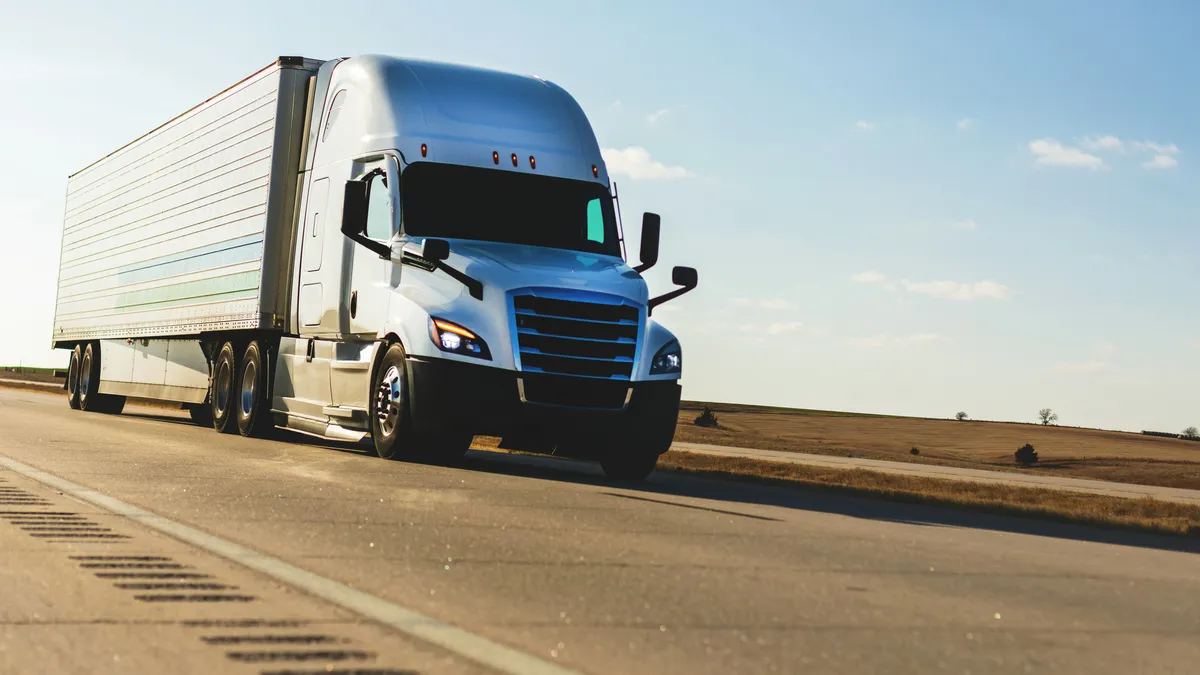Dive Brief:
- The Biden administration cleared the way Friday for California to set rules phasing out diesel trucks, eliciting an outcry from regional and national trucking groups about the expected effect of the rules.
- The Environmental Protection Agency’s waiver authorized the state to enforce its Advanced Clean Trucks rule, which requires 75% of Class 4-8 truck sales to be zero-emission vehicles by 2035, according to the governor’s office.
- The American Trucking Associations argued the EPA, not California, should set emissions rules and said the state lacks the required infrastructure. “California’s rhetoric is not being matched by technology,” ATA President and CEO Chris Spear said in a statement, urging the EPA to instead create “a single, achievable national standard.”
Dive Insight:
The EPA’s waiver provided the California Air Resources Board (CARB) the authority to enforce the Advanced Clean Truck rule and other regulations. The state needed White House authorization because its proposed rules exceeded EPA requirements.
The waiver allowed California to become the first government in the world to require zero-emissions trucks, Gov. Gavin Newsom said in a statement Friday.
“We’re leading the charge to get dirty trucks and buses — the most polluting vehicles — off our streets, and other states and countries are lining up to follow our lead around the world,” the governor said.
Harbor Trucking Association President and CEO Matt Schrap, representing West Coast drayage carriers, said the decision was no surprise.
Schrap pointed out the new waiver doesn’t require carriers to purchase and use the zero-emissions equipment — only for OEMs to sell it.
“However, the real story will be on the [Advance Clean Fleets regulation], which in addition to kicking off [heavy-duty zero emissions] use requirements staring 1/1/24 is also looking to increase the [heavy-duty] & [medium-duty] sales mandate to 100% in 2036,” Schrap wrote on LinkedIn.
The U.S. in November joined an international agreement to shift all truck sales to zero-emissions by 2040. The EPA issued a final rule the next month strengthening heavy-duty truck emissions standards, beginning with model year 2027 vehicles.
In response, the ATA and other trucking groups created the Clean Freight Coalition last month to promote the industry’s progress on emissions and lobby against what Spear described as aspirational, unrealistic timelines.
Spear denounced EPA’s waiver in his statement Friday, saying the agency was “handing over the keys as a national regulator.”
“This isn’t the United States of California, and in order to mollify a never satisfied fringe environmental lobby by allowing the state to proceed with these technologically infeasible rules on unworkable and unrealistic timelines, the EPA is sowing the ground for a future supply chain crisis,” Spear warned.
California’s regulations are onerous, increasing operating costs for truckers and pushing them out of the state, Owner-Operator Independent Drivers Association President and CEO Todd Spencer also said in a statement.
"Vehicle reliability and affordability are top priorities for OOIDA members,” Spencer said. “We have yet to see proof that electric [trucks] are a realistic option for most trucking businesses considering the price tag and lack of charging infrastructure. The bottom line is that the technology they’re trying to mandate does not yet exist."













